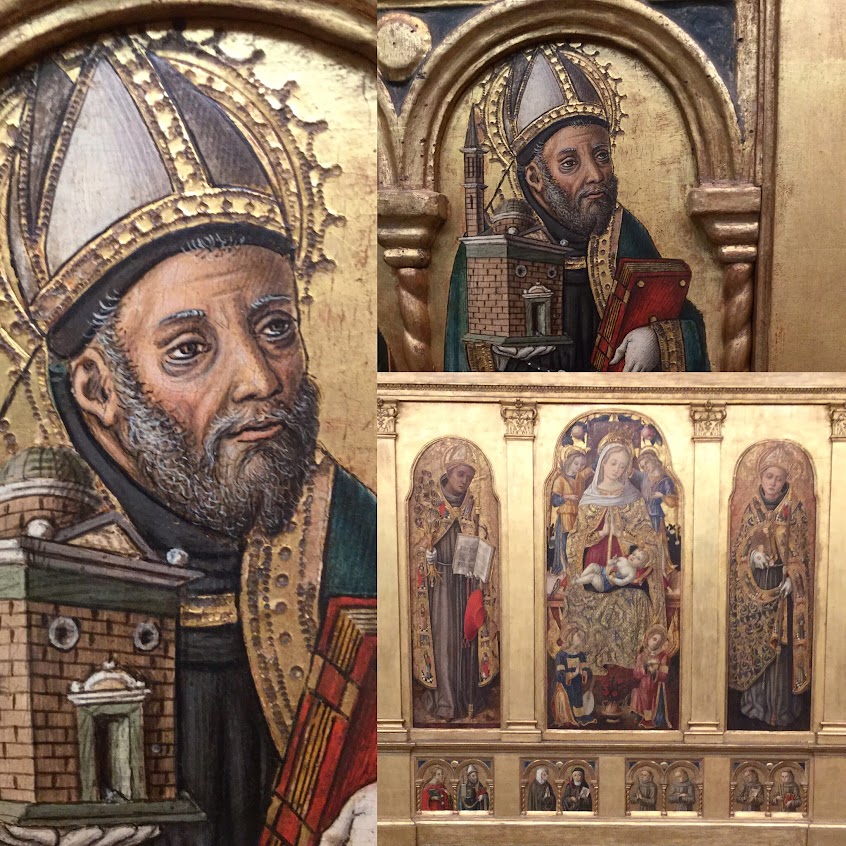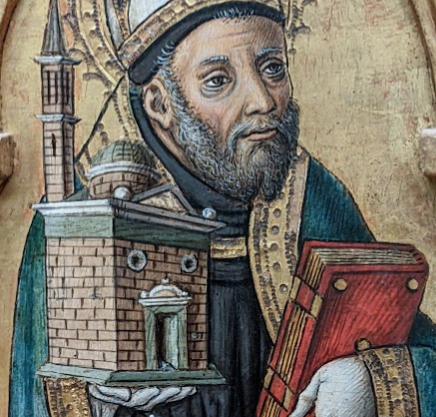There’s an Augustine quote, widely available on all of the “Swell Quotations” websites, that just seems too good to be true. Here it is:
“Really great things, when discussed by little men, can usually make such men grow big.”
When a quote is extremely quotable, widely applicable, attributed to somebody famous, but not footnoted, my editorial alarms go off. As C.S. Lewis famously wrote, “I didn’t say, like, half the things people say I said, especially on the web.”
Well, pilgrims, this Augustine quote is real. Quote away in good conscience.
Here are your footnotes, and some context:
In his early dialogue Contra Academicos (Against the Skeptics), Augustine writes himself into the story as a character. In the first few pages, while the participants have just stated the theme of their discussion, staked out some positions, and are warming up to get started in earnest, Augustine the character speaks up to summarize:
Since one of you thinks it possible to attain a happy life by a mere searching for the truth, while the other thinks it can be attained only by the finding of it–and a moment ago Navigius showed that he was inclined to go on your side, Licentius–I am very anxious to see what kind of defenders of your opinions you may be. The question in debate is a matter of the utmost importance: it is worthy of diligent discussion.’
‘If it is a matter of great moment,’ added Licentius, ‘it calls for men of great abilities.’
I said: ‘Do not try to find–especially at this villa–what can hardly be found anywhere on earth. Rather, explain the why and wherefore of your believing what has been–and not unwisely, I believe–proffered by you. For, when matters of great moment are inquired into by men of little ability, they usually make them men of great ability.’
You can find this in “Answers to Skeptics,” translated by Denis J. Kavanagh, in Writings of St. Augustine: The Happy Life, Answers to Skeptics, Divine Providence and the Problem of Evil, Soliloquies, volume 5 in the series Fathers of the Church: A New Translation (NY: CIMA Publishing, 1948), at p. 112. But you may have noticed the translation is different: not “great things” but “matters of great moment.” That’s because the quote seems to have made its way to the internet from Peter Brown’s epochal Augustine biography, where it appears on page 120 (or page 114 of the revised edition). It’s safe to assume the translation is Brown’s own.
We know quite a bit about how Augustine composed these very early works, grouped as the Cassiciacum dialogues. We know that Against the Skeptics is based on a conversation that can be dated pretty precisely to Nov 10, 386. We know the names of the group of people Augustine was living with at the time in a kind of retreat setting on a friend’s country estate in Italy, where they hoped to live out a communal life of seeking God by reading Scripture and discussing great philosophical topics. And more to the point, we know that Augustine had reason to be disappointed with the rather motley crew of friends and relatives who ended up being able to commit to this life together: “an ill-assorted company for a life of philosophical otium: a pious old woman, two uneducated cousins, and two private pupils, aged about sixteen,” as Peter Brown says. This was not an ideal group for a serious inquiry into important topics. Augustine must have been very disappointed that his long hoped-for philosophical retreat had to be carried out in such an inadequate community.
And that’s the little twist in the key quote, which I think adds an extra layer to it. Consider the quote on its own: “When matters of great moment are inquired into by men of little ability, they usually make them men of great ability.” –That’s very good, and it would make a fine motto for any higher education project. maximae res, cum a parvis quaeruntur, magnos eos solent efficere. (Latin text here) Great truths require us to strive after them, to stretch our capabilities in order to attain to the heights of the things. Our minds are enlarged as we learn large things.
But now consider the context in which Augustine said it: “We need some great minds,” says Licentius. “Well,” replies Augustine, “those are rare. And they’re extra rare here in this villa.” Since we are saddled with and surrounded by unimpressive, less-than-ideal minds, we need another plan. Our hope of attaining to great things lies not in our skills or our equipment, but in the great things. They have within themselves the power to make us grow up, grow into them, grow to a greatness corresponding to theirs.
Reader, are you seeking the truth in a less than ideal educational setting? Are there heavy odds against you and your colleagues reaching the aim of your educational strivings? Do you have good reason to suspect that you and your institutions are of too small a capacity to be able to attain the great things you seek?
Don’t despair. The greatest subjects, when discussed by little ones, are able to make the little ones great.
_______________
The Augustine image at the top of this post is a photo I took of one little corner of this piece in the Fitzwilliam Museum in Cambridge. It’s a fifteenth-century altarpiece by Vittore Crivelli, and it’s impressive in many ways, but I’m especially struck by the scale. It’s a large object with a very high level of detail and finish all the way down to the smallest sections. Here’s a montage that attempts to give a sense of that.


